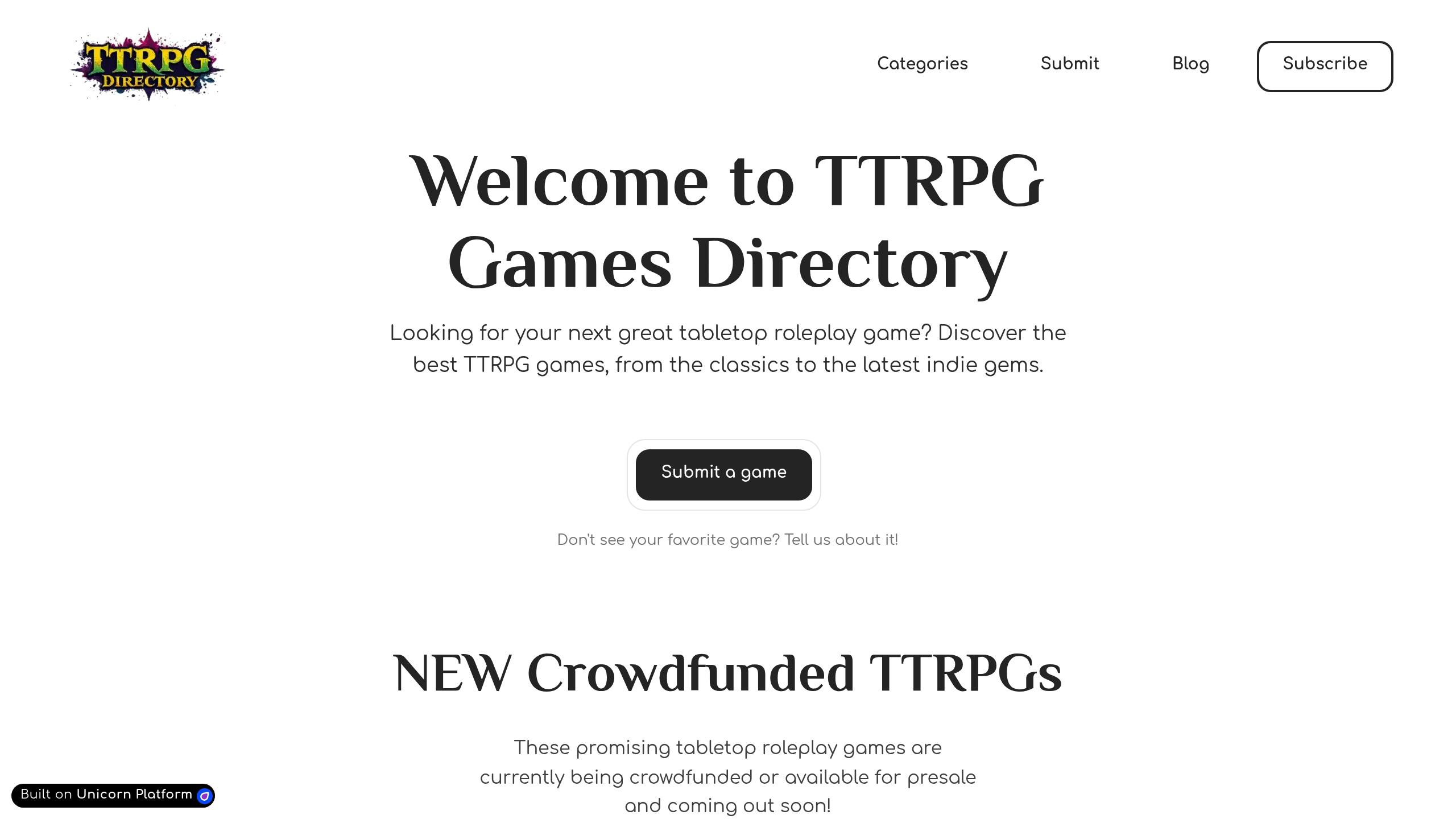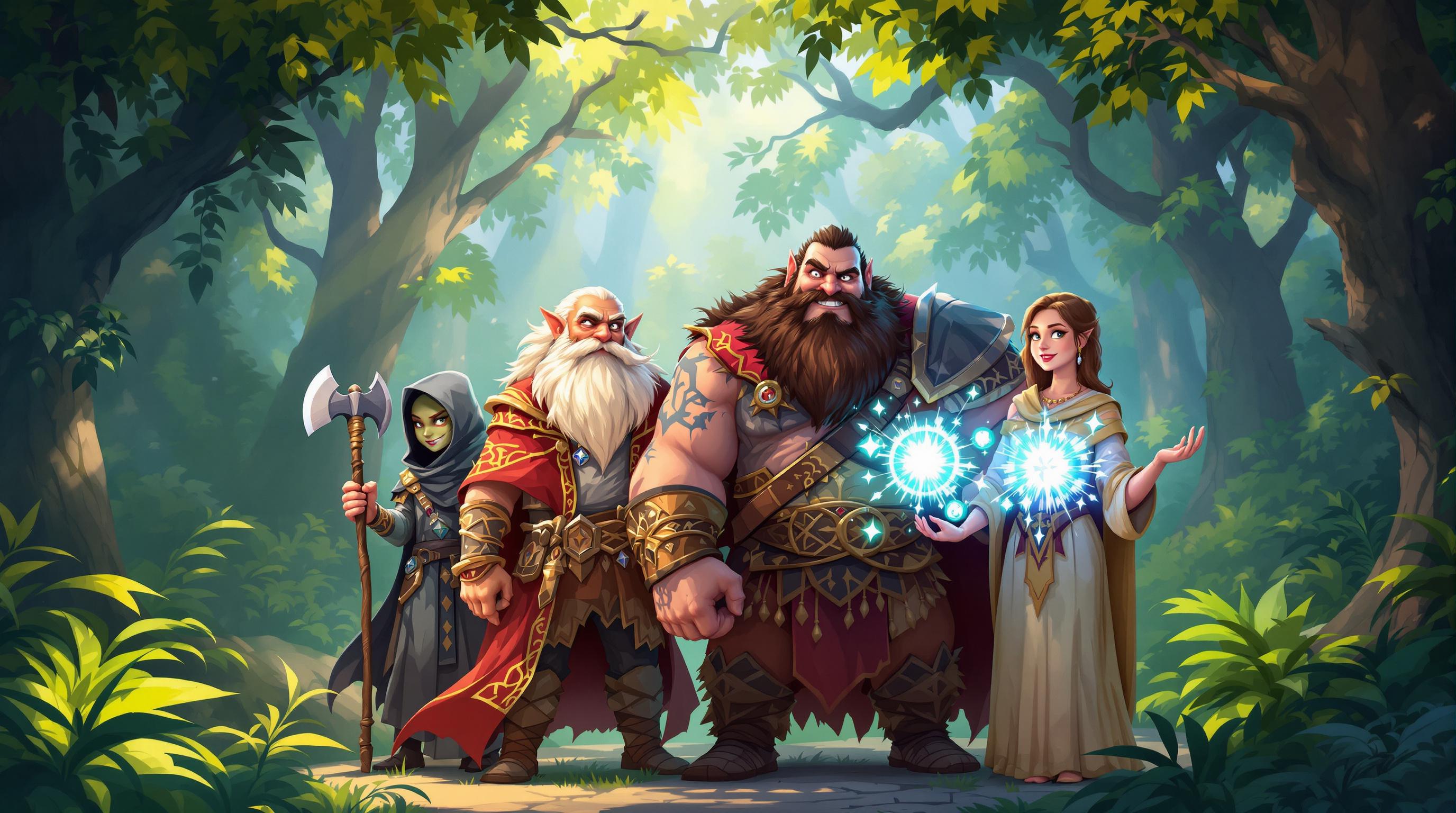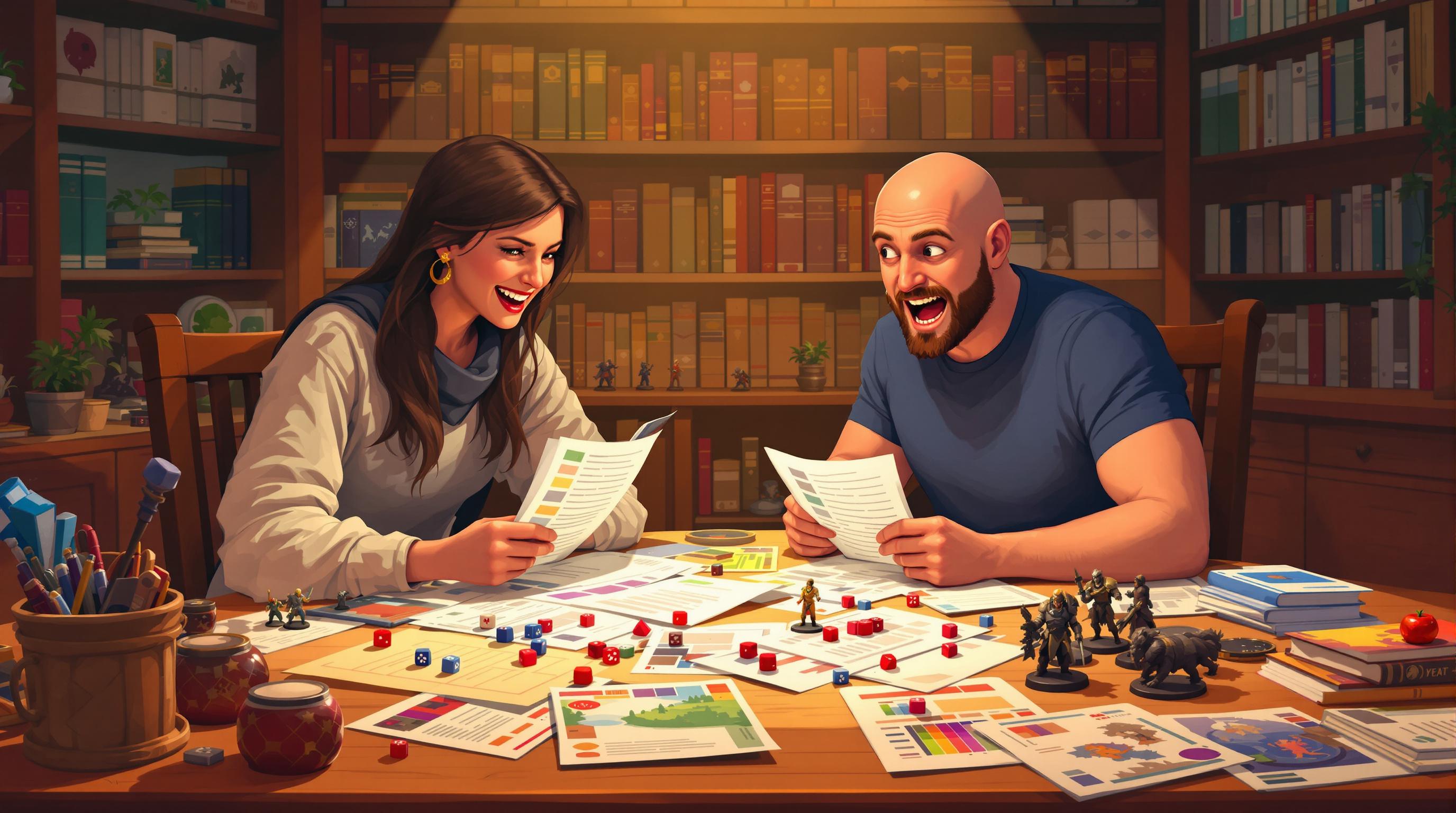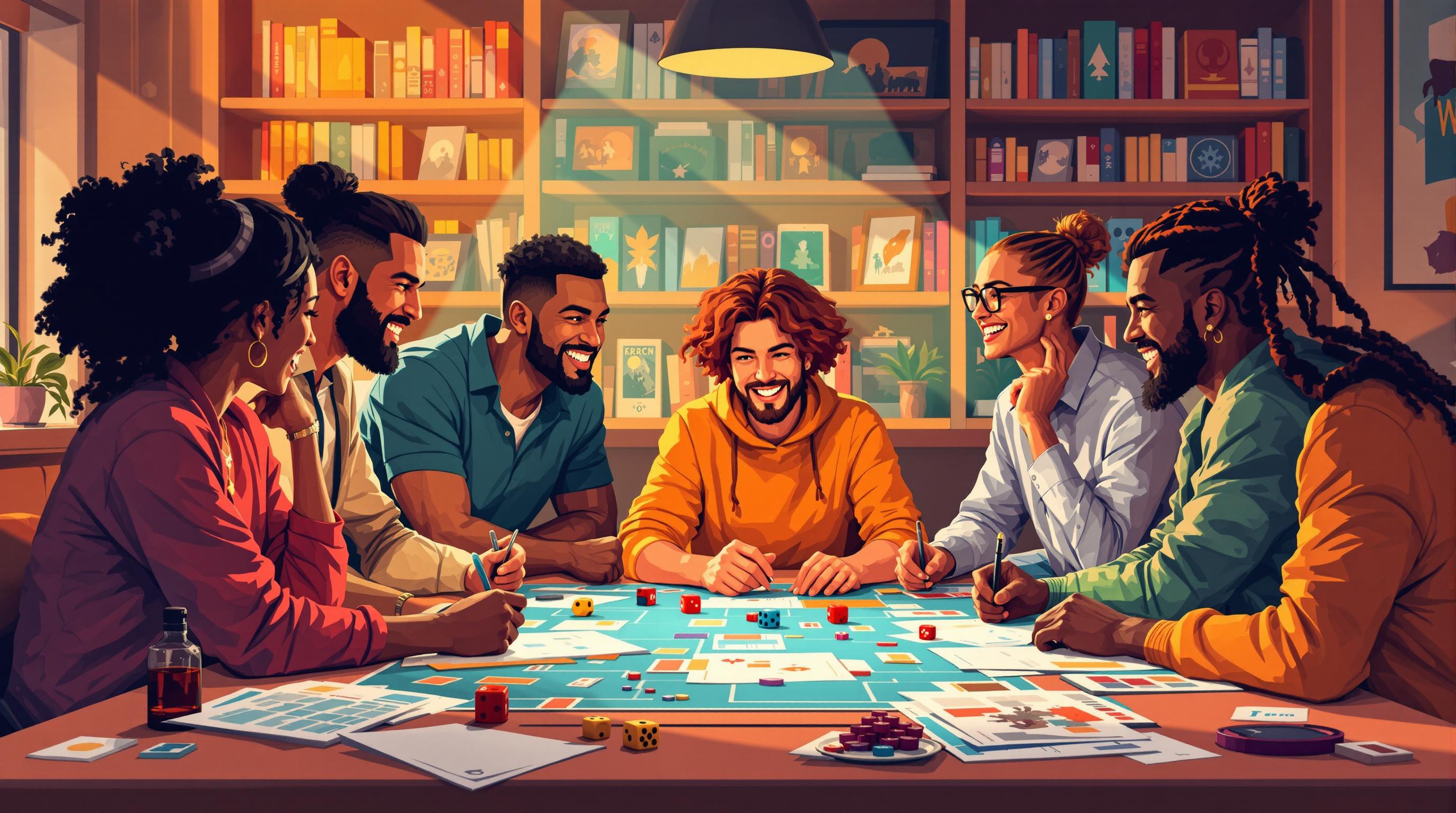Tabletop RPGs are evolving. Traditional race-based character creation systems are being replaced by ancestry and culture models that promote flexibility, creativity, and inclusivity. Here's the key takeaway: separating inherited traits (ancestry) from learned traits (culture) allows players to build unique characters without being bound by rigid stereotypes or mechanics.
Key Points:
- Why Change Was Needed: Race-based systems often reinforced stereotypes and limited creativity.
- Ancestry vs. Culture:
- Ancestry: Physical traits, natural abilities, and resistances.
- Culture: Learned skills, languages, traditions, and social influences.
- Examples of Games with New Systems:
- Pathfinder 2nd Edition: Separates heritage from background.
- Level Up: Advanced 5th Edition: Distinguishes heritage and culture with detailed backgrounds.
- Soulbound: Assigns physical traits to species and cultural traits to archetypes.
- D&D 5e Updates: Tasha's Cauldron of Everything introduced flexible ability score adjustments, allowing for more personalized character creation.
This shift benefits players by enabling richer storytelling, better mechanics balance, and more diverse character options. Check out the TTRPG Games Directory to find games embracing this modern approach.
Pathfinder 2E - Ancestry, Heritage, and Background: An ...
Issues with Race-Based Rules
Race-based systems in RPGs often limit how players can express creativity and can unintentionally reinforce stereotypes.
Fixed Racial Traits
Fixed racial traits tie abilities to race in ways that restrict character development. Here’s why this approach poses challenges:
- Biological Determinism: It assumes that all members of a race share the same abilities, reducing individuality.
- Limited Character Concepts: Players trying to break away from typical archetypes often face mechanical disadvantages.
- Cultural Oversimplification: These systems blur the lines between biological traits and culture, oversimplifying the complexity of diverse societies.
For example, assigning dwarves a bonus to Constitution is a classic mechanic, but it highlights how these fixed traits can limit creativity and flexibility in character design.
How This Affects Player Experience
Race-based rules don’t just affect mechanics - they also impact how players engage with the game and their ability to create unique characters:
1. Narrative Restrictions
Players often feel torn between optimizing their character's abilities and pursuing creative or unconventional concepts.
2. Representation Challenges
Linking traits to race can perpetuate stereotypes, making it harder to represent diverse cultures in meaningful ways.
3. Rigid Mechanics
The lack of flexibility discourages experimentation, as players may feel forced to prioritize stats over storytelling.
In response to these issues, many modern RPG systems are moving away from race-based mechanics. Instead, they focus on separating physical traits from cultural elements, giving players more freedom to build nuanced characters. The TTRPG Games Directory highlights this trend, showcasing systems that prioritize player choice and celebrate cultural diversity in character creation.
Ancestry and Culture Systems
Separating ancestry from culture allows for more nuanced and inclusive character creation. It opens the door to diverse backgrounds while maintaining balanced mechanics. This approach directly tackles the rigidity and stereotypes discussed earlier.
Breaking It Down
Character creation is divided into two main components:
Ancestry (Inherited Traits)
- Physical characteristics
- Natural abilities
- Resistances or vulnerabilities passed down
Cultural Traits (Learned Characteristics)
- Languages and traditions
- Skills and proficiencies
- Social ties
- Knowledge passed through upbringing
This separation ensures characters reflect both their lineage and their environment.
Why This System Works
Splitting ancestry and culture can improve character creation in several ways:
- More Flexibility: Players can create characters raised in a culture different from their ancestry, explore mixed heritage, or craft unique backstories.
- Better Balance: Physical traits are tied to ancestry, while learned skills come from culture. This lets players optimize mechanics without compromising storytelling.
- Richer Worldbuilding: Societies gain depth, with multiple cultures tied to the same ancestry. Cultural traits can also adapt to fit the game’s setting.
Examples in Practice
Some modern RPGs already use ancestry and culture systems effectively:
Pathfinder 2nd Edition (2019)
- Separates heritage from background
- Offers cultural feats unrelated to ancestry
- Allows flexible ability score adjustments
Level Up: Advanced 5th Edition (2021)
- Distinguishes heritage from culture
- Provides detailed cultural backgrounds
- Supports blending of cultural influences
Soulbound (2020)
- Assigns physical traits to species
- Uses archetypes for cultural elements
- Includes optional cultural backgrounds
The TTRPG Games Directory highlights these systems and others, helping players discover games that align with their style of play.
sbb-itb-b8b00a5
Current Game Updates
The tabletop RPG world is moving away from race-based rules, leaning toward more inclusive systems. Major titles are leading this shift, influencing the broader industry.
D&D 5e Ancestry & Culture
Dungeons & Dragons 5th Edition has introduced more options for character creation. Tasha's Cauldron of Everything (2020) brought in optional rules allowing players to swap out fixed racial ability score increases. Instead, characters can receive a +2 bonus to one ability and a +1 bonus to another. Skill and language proficiencies can also be adjusted to better align with a character's personal story and background.
Other Systems Embracing Change
Other RPG systems are also distinguishing between inherited traits and cultural influences. While the specifics differ, the trend is clear: character creation is becoming more flexible and inclusive. The TTRPG Games Directory offers detailed analysis of these evolving approaches. Game designers are increasingly recognizing that a character’s identity is shaped by a mix of ancestry, experiences, and cultural context. These changes aim to deepen gameplay by blending player choice with rich storytelling possibilities.
Community Response
The move from race-based systems to ancestry and culture models has sparked valuable feedback from the community, shedding light on how these changes are being received and their broader impact.
Player Feedback
Players are excited about the freedom ancestry and culture systems provide. These systems allow for unique character builds - like a dwarf with an unexpected upbringing - without being tied to rigid mechanics. By separating physical traits from cultural backgrounds, players can explore creative character concepts without worrying about mechanical drawbacks. This enthusiasm is shared by designers, who see new opportunities for deeper storytelling.
Game Designer Views
Game designers acknowledge that transitioning to ancestry and culture systems involves balancing gameplay mechanics with rich narratives. From their perspective, this shift offers three main advantages:
- Richer Storytelling: Characters can have complex backstories that reflect both their heritage and life experiences.
- Better Balance: Mechanics feel more even without fixed racial bonuses.
- More Inclusivity: These systems avoid cultural stereotypes, making the gaming space more welcoming for everyone.
The TTRPG Games Directory keeps track of these design trends, helping players find games that adopt these modern character creation approaches.
Conclusion
Main Points
Switching from race-based systems to ancestry and culture frameworks improves character creation by clearly separating physical traits from cultural backgrounds. These updated approaches give players more control, create fairer gameplay, and move away from outdated stereotypes.
Next Steps
The tabletop RPG world is changing, with more games adopting ancestry and culture mechanics. Designers are updating existing systems, and new releases are reflecting this shift, offering players a broader range of inclusive and engaging experiences.
Explore RPGs on TTRPG Games Directory

Check out the TTRPG Games Directory for a carefully chosen list of RPGs that use ancestry and culture systems. Discover games that fit your preferences and style.


